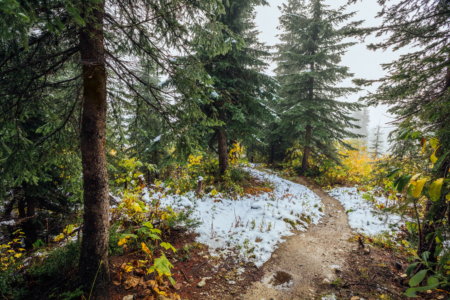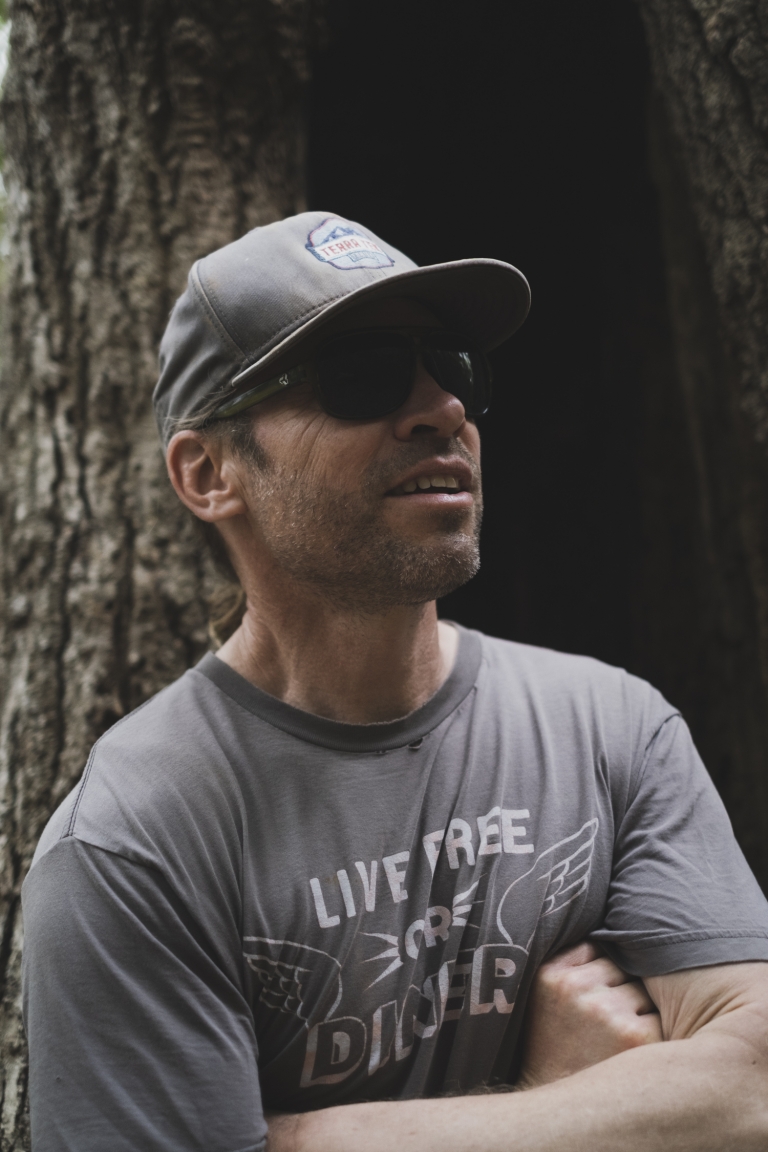Moments of Flow
The psychology of the perfect ride.
I scan down the trail ahead of my front wheel, but I already know what’s coming: tangled sideways roots; toaster-sized, squared-edged rocks; a right-left-right series of pocket berms; and then, lurking beyond it all, the slab. Each obstacle fills my mind like a folder in a filing cabinet, a progression of corresponding skill sets required to navigate each specific feature. All are necessary, and all are vying for my immediate attention.
Some days, riding this section of trail feels like I’m fumbling through those folders in mental oven mitts, frantically searching but never finding the right one. Meanwhile, I bobble along, each mistake amplified by thoughts of the impending slab and my ego: You better get your shit together.
But today is not one of those days. Today, the ride is perfect.
It starts with the sounds. My tire knobs ripping damp dirt like the pull of a zipper. The pop, pop, pop of my wheels skittering across the tops of rocks. The airy squish of my suspension as I unweight.
Then, silence. The anxiety of the unsorted folders—even about the slab—is gone. Everything turns fluid. My movements align with the obstacles: my knees pointing to increase grip, my joints relaxing for better range of motion, my eyes focusing not on the obstacles but the channels between. I cease to be aware of myself as something separate from what I am doing. I have become a coherent wave of action. I have achieved the flow state. And it feels really damn good.
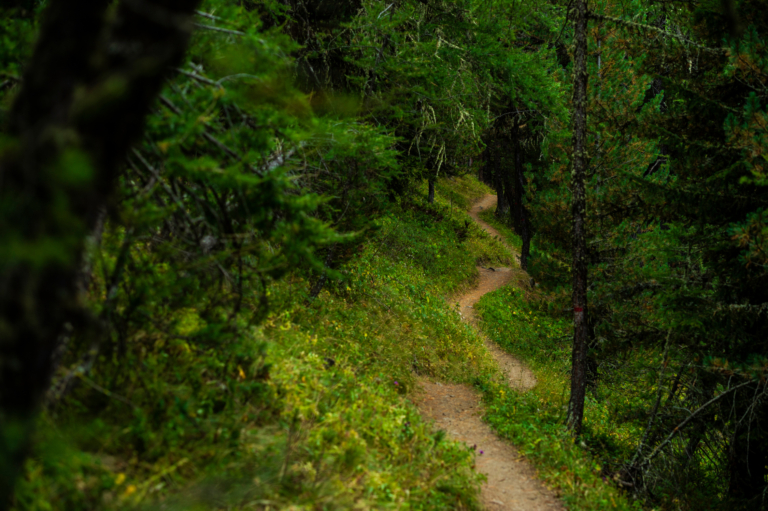
Cresta Replan Trail. Pila, Italy. Photo: Mattias Fredriksson
This moment of “flow” is more than just a feeling. It’s a documented psychological state of consciousness, supported by decades of academic research, where one becomes so totally, intensely involved in an activity that nothing else seems to matter. It’s familiar to musicians, athletes, actors … and, increasingly, modern trail builders. According to psychologists, it could even be the key to unlocking a happy, fulfilled life.
Mihaly Csikszentmihalyi (pronounced “Me-high chick-sent-me-high”) is not a mountain biker but the Hungarian-American psychologist who literally wrote the book on the flow experience. As an imprisoned child in World War II, Mihaly saw a world out of order and spiraling into chaos. The experience led to a lifelong academic career, with a focus on enjoyment and the quality of life. He studied artists, rock climbers, writers and others engaged in intense, enjoyable activities, during which participants reported feeling completely absorbed, in effortless control and at peak performance. Mihaly called this “optimal experience” and used the word “flow” to describe this state of consciousness.
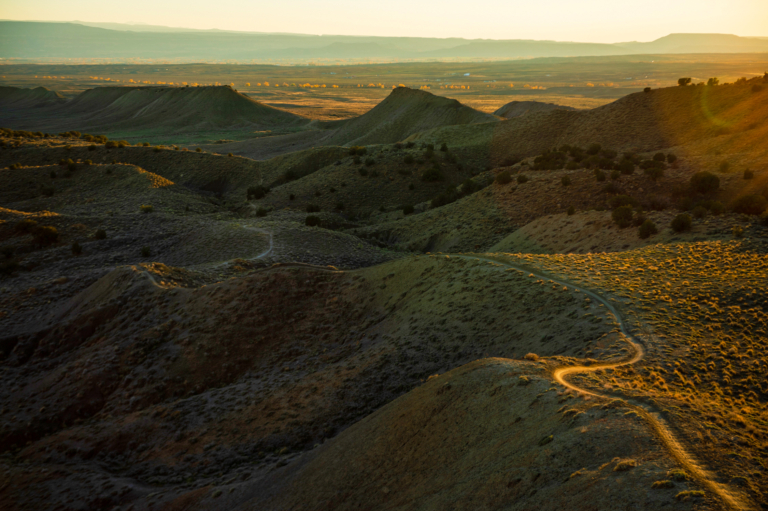
Joe’s Ridge Trail. Fruita, Colorado. Photo: Mattias Fredriksson
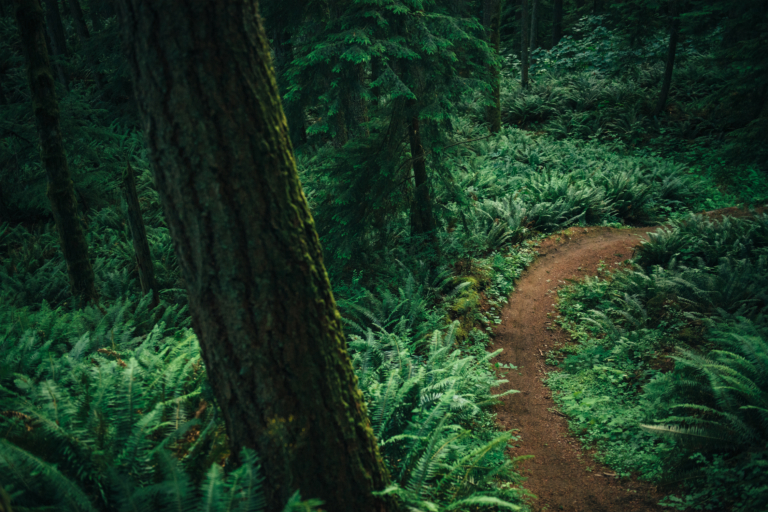
Rufus Creek Trail. Bellingham, Washington. Photo: Paris Gore
In the flow zone, a person stops being aware of themselves as separate from the actions they are performing. Self-consciousness disappears, concentration is at a zenith, and their sense of time is boundless. The result is an individual that is not only performing at their best but also experiencing genuine satisfaction. After a flow experience, Mihaly says, this person becomes a more unique and complex individual, capable of ever-increasing skills and fully enjoying the moment.
Mihaly presented his academic findings in his best-selling 1990 book, Flow: The Psychology of Optimal Experience. The term quickly found its way into pop culture, but, as Mihaly points out, “flow” is a more elevated concept than “go with the flow” or “being in the zone.” The flow state is not something that arbitrarily happens; we make it happen by selecting challenges that are neither too difficult nor too simple for our personal skill level. When one’s relevant skill set is “fully utilized yet equal to the demands of the task,” as defined by the American Psychological Association, we can create flow.
It turns out that, with enough talent, a trail builder can create flow as well. But to understand how someone could infuse psychology into dirt, it’s important to look back to a previous era, one before the advent of purpose-built mountain bike trails.
In the sport’s infancy, mountain bikers rode trails intended for travel by foot, horse or gas-powered vehicle, usually built with the goal of reaching a scenic view or a waterfall or some other outstanding natural splendor. Common features like stairs and water bars worked well for feet but were completely inconducive to a set of wheels, forcing many riders to take a “point-it-and-hope-for-the-best” mindset to navigate them. There’s no doubt some found enjoyment in such tests of skill, but for many, it turned mountain biking into a less-than-optimal experience.
Ask a modern mountain biker to describe an enjoyable trail and the response is often “one that keeps your attention.” In the early days, this was accomplished through sheer difficulty; now, it’s more likely that the builder engineered as much psychology into their trail as physics. The best share one trait: They are built as a means to their own end. Rather than a beautiful view or waterfall, the trail itself becomes the intrinsic reward.
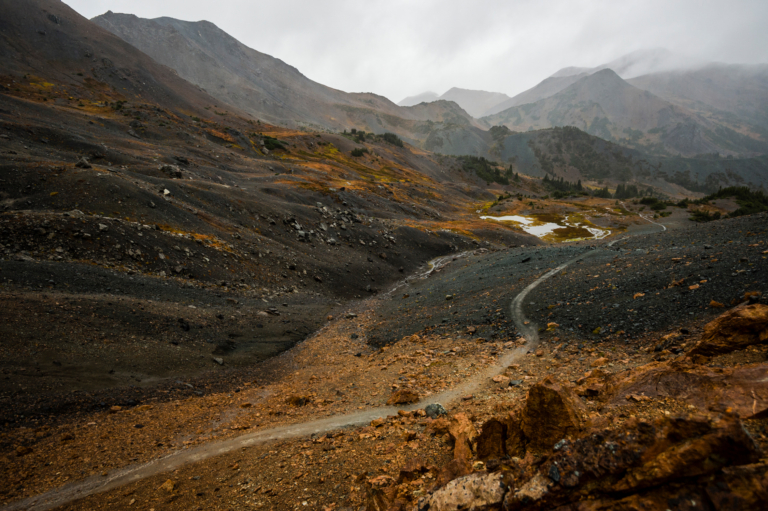
Camel Pass Trail. Southern Chilcotin Mountains Provincial Park, British Columbia. Photo: Mattias Fredriksson
Intentional or not, these builders have incorporated Mihaly into their creations. First, they will use the intended rider’s skill level as a reference point for the whole trail. Next, they will set goals for what they want the trail to accomplish and create features to exemplify those characteristics. The builder will link each of these in a way that inherently transitions into the next.
The way these features are structured—the angle into and out of a berm, the shape of a jump’s face, the way a rock roll is positioned—communicates to the rider the required skill set. The feedback transferred to the rider is immediate and unambiguous, giving them an almost preemptive feeling of success.
This innately focuses their attention on the moment at hand, and there is no room for distracting thoughts or ego. There is only action and awareness, unconscious response and inherent enjoyment. Time disappears. They achieve flow, whether they know it or not.
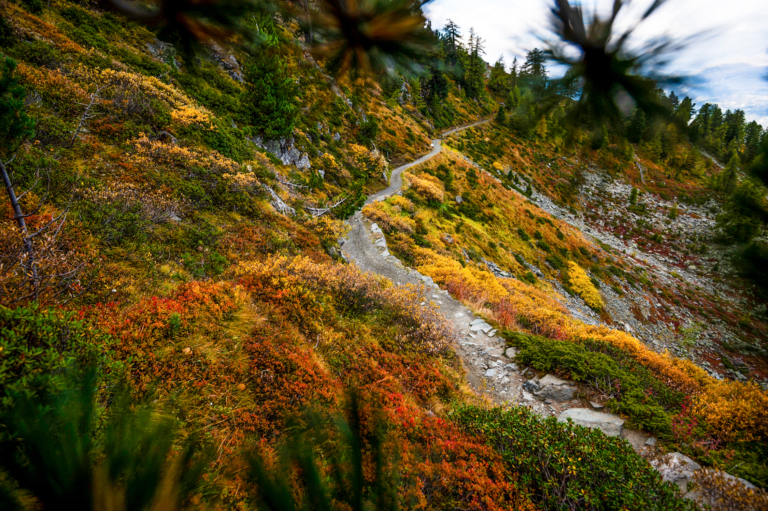
Cresta Replan Trail. Pila, Italy. Photo: Mattias Fredriksson
Interestingly, this isn’t limited to any specific skill level. A beginner can achieve optimal experience on a green trail the same way an advanced rider flows down a black diamond. And it works both ways; an expert can find challenges on even the easiest trail, and a beginner can often achieve flow on one otherwise outside of their ability. These purpose-built trails not only foster progression; they provide an unobstructed palette on which each individual can bring their own uniqueness to the experience, instead of being fully occupied simply trying not to crash.
Mihaly believes flow structures our consciousness in a way that reveals our whole self, our full capabilities and the importance of how we use them. Without this mental order, he says, people cease to make the world a better place to live. “When the flow experience is over, one feels ‘more together’ than before,” he says, “not only internally but also with respect to other people and to the world in general.”
The slab comes up on me as if it was always there, and I am at the bottom before fear or doubt can even register. On my way back to the truck, I meet up with my sons and their friends on a new, purpose-built jump trail. They’ve literally grown up on such trails, and they harness the tread’s feedback without a thought, matching every curve and turning a gauntlet of complicated, intricate movements into a series of unfolding moments. They do so for no reason beyond the experience, finding creativity where generations before saw nothing but straight lines. They’re fully present, fully engaged, fully aware human beings. It is so refreshing to see.
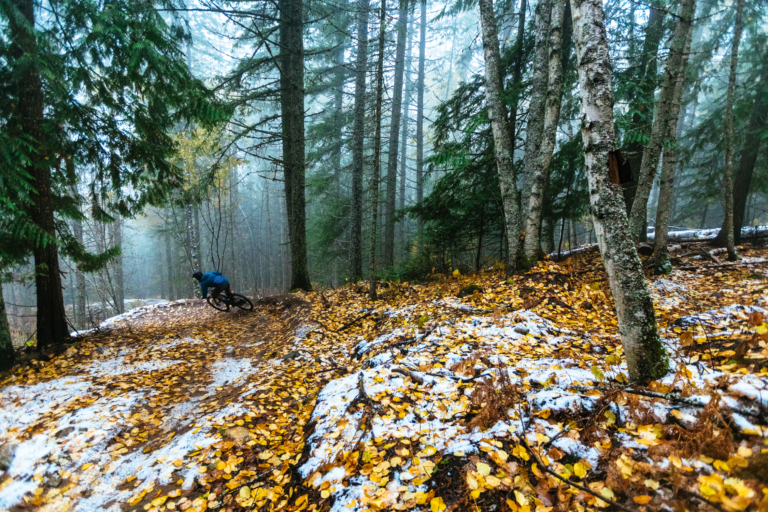
Brian Langlois on Lower Haulin’ Daze. Revelstoke, British Columbia. Photo: Ryan Creary
In those moments, I see the embodiment of Mihaly’s “autotelic self.” These individuals set their own goals, for the sheer enjoyment of pursuing them. Unburdened by external motivations or assessments of success, potential threats become enjoyable challenges. They make choices with less stress. They’re more open to feedback and more welcoming of different ideas. They focus less on themselves and engage more with the situation around them. They become more consistent and more flexible, less self-involved and more self-confident. By creating flow, they grow beyond the limits of individuality.
“The self becomes complex as a result of experiencing flow,” Mihaly says. “Paradoxically, it is when we act freely, for the sake of the action itself rather than for ulterior motives, that we learn to become more than what we were.”
And I think this is the core value of Mihaly’s optimal experiences: Like a perfect bike ride, humanity’s health depends on its individuals existing in the here and now. Not clinging to the past, not hoping for some future outcome, not pointing it straight and hoping for the best, but flowing continuously with each moment.
